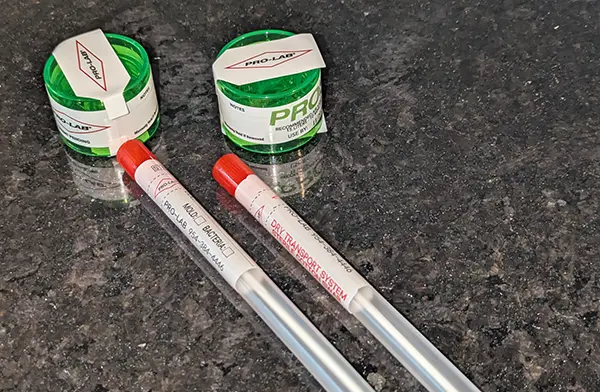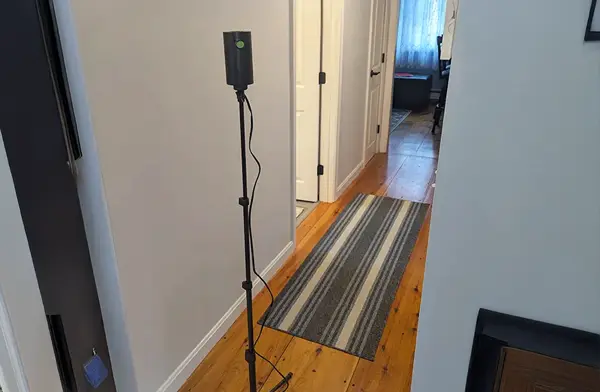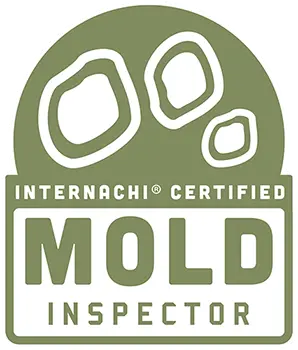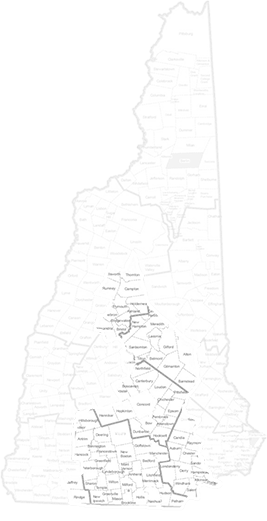Professional Mold Testing
Protecting your health and your home!
Your home needs to provide a healthy indoor environment. Our mold testing services assess your home for the presence of mold. Air and surface sampling helps detect hidden mold and protects your health from issues like allergies and respiratory problems.
Mold Testing in NH
Molds are part of the kingdom Fungi and play an important role in nature by breaking down dead organic matter. Mold spreads by naturally occurring mold spores floating through the air and are present outdoors as well as in our homes. When mold spores land on damp surfaces, they grow and digest whatever they are growing on. Molds can grow on many materials in our home, including wood, paper, drywall, carpets and insulation. Indoor mold growth can present a number of health risks. The most common symptoms include allergies and irritations, although serious infections and illnesses have been reported due to mold exposure. Mold can even cause structural damage to our homes. We are trained and certified for mold testing in NH and utilize state-of-the-art equipment to help keep your home and your family healthy.
Do I need Limited Mold Testing or a Complete Mold Inspection?

Limited Mold Testing
This is done when you suspect mold growth in a small, specific area of your home and is limited to one room or area. Examples may include localized water damage. A limited mold inspection does NOT include a visual examination of the entire building; However, it does typically require an air and surface sample be obtained.

Complete Mold Inspection
Our complete mold inspection involves a visual (non-invasive) examination of all readily accessible areas of the home. A complete inspection involves measurements for moisture, temperature and humidity, obtaining numerous air samples and sometimes swab analysis. During a complete mold inspection, your inspector is checking for any conditions conducive to mold growth, such as water intrusion.
Frequently Asked Questions
Can you tell if I have toxic mold in my house without testing?
While we may be able to visually see mold-like growth on surfaces in your home, the only way to know is to test.
I have a weird musty smell in my home, should I get my home tested for mold?
Yes, you should get your home tested as musty odors may be indicative of mold growth.
I saw a DIY Mold Test in the hardware store. Can I test it myself?
These swab test kits are not very accurate and do not provide a control sample, which leads to inaccurate results. Air sampling is needed to determine whether the mold spores are getting in the air in your home. A trained and certified mold testing specialist knows how to properly collect air samples and swabs (if necessary).
I can see mold-like growth in my home, am I required to have it tested?
No. There are no EPA or federal limits set for mold and/or mold spores. However, you should contact a qualified mitigation professional for proper remediation.
Can I test my home for mold any time of year?
Yes, but this is a complicated answer. Proper mold testing involves collecting outdoor air samples as this is part of the control process. Sub-freezing temperatures, snow-cover, and even rain, make it nearly impossible to collect an accurate outdoor sample. You will likely have to have some patience and flexibility in your calendar in order for us to test properly.
How long does mold testing take?
A comprehensive mold testing inspection can take anywhere from 2-6 hours depending on the size of the property. Samples are then submitted to the laboratory for analysis and may take 3-5 days, up to a week, to get all of the results back.
Does mold have to be active to cause a reaction?
No! Mold spores can cause health reactions whether it is active mold growth, or inactive.
How much does mold testing cost?
That answer has many variables depending on the size of the home and whether we must obtain any surface samples (swabs). It is best to talk with our certified mold testing inspector to get an accurate estimate. To give you a general idea, it is unlikely the costs will be below $450.




















